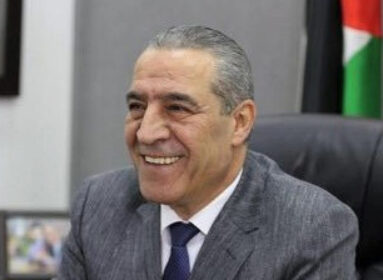
A sewer pipe bomb shelter in the farming village of Yevul, alongside the Gaza Strip. Credit: B. Davidson.
BE’ER SHEVA, Israel — The worst Palestinian rocket barrages from the Gaza Strip so far this year saw 166 rockets — not including 56 intercepted by the Iron Dome missile defense system — fired into major southern Israeli cities, with the wail of sirens and sudden explosions jolting residents, sometimes several times an hour.
During the period of March 9-12, there were more than 20 Israeli civilians injured. Authorities in communities in a seven-to-40-kilometer (22-mile) radius from Gaza canceled all schooling on Sunday and Monday due to a lack of sufficient bomb shelters. Closer-in towns reinforced schools and public areas, enabling studies to continue. As the Ledger went to press, an Egyptian-brokered truce took hold at 1 a.m. Tuesday, March 13, as fighting between the Israel Defense Forces (IDF) and Palestinian terrorists entered its fifth day.
The feeling of Gaza rockets is all too familiar for southern Israel. For the 200,000 residents of Be’er Sheva, life “does not go on as normal,” Deputy Mayor Dr. Heftzi Zohar told JointMedia News Service. While the “queen of the Negev” was not totally closed for business due to the latest rockets, “Most of the time commercial centers are empty, but this is our regular life these days, unfortunately,” Zohar said.
This round of rocket strikes began when an IDF aircraft on March 9 killed Popular Resistance Committee (PRC) chief Zuhair al-Qaissi, along with two other members traveling in his car in Gaza City. The PRC is a militant group in Gaza aligned with Hamas that was behind the abduction of Gilad Shalit, the Israeli soldier who was held captive for more than five years and freed in a prisoner swap for more than 1,000 Palestinians.
The IDF said the group was about to carry out “a combined terror attack on the Israel-Egypt border,” and closed a road that was hit in a similar attack last August in which eight Israelis were killed. The PRC vowed that it would keep carrying out revenge attacks. “We are not committed anymore to the truce with the occupation (Israel). We will teach the occupation a lesson for its ongoing crimes,” PRC spokesman Abu Mujahid told reporters.
Defense Minister Ehud Barak said in a statement to reporters that Israel would “act against anyone who attempts to send rockets or perpetrate terror attacks. Anyone attempting such an attack will pay the full price.” Israeli Air Force strikes to quell the salvos killed 19 members of armed terrorist groups — 14 from Islamic Jihad and five from the PRC.
While the Iron Dome anti-missile system successfully downed 56 rockets, residents in Be’er Sheva, coastal Ashkelon and Ashdod faced sleepless nights during the recent round of attacks, punctuated with numerous trips to bomb shelters and fortified structures.
Sara Shomron of the village of Nitzan, halfway between Ashdod and Ashkelon, was forced, along with her children, to seek shelter in their home’s built-in bomb shelter no less than six times on Friday and Saturday. Nitzan’s more than 500 residents were evacuated from their homes in Gaza in 2005. Many of them are still living in temporary housing and had to seek shelter in giant sewer pipes set at numerous locations throughout the village, Shomron told JointMedia News Service.
Over the weekend, Shomron said she “was out walking one of our dogs when the siren went off and I quickly made haste to a house that’s under construction and went into its bomb shelter. It was only partially completed but I figured that it was better than doing nothing.”
Shomron said that many Nitzan children “are afraid to take showers; they’re afraid they’ll be in the shower when the siren goes off… all of a sudden you have teenagers who are wetting their beds.”
In Ashdod, Terri Millstone told JointMedia News Service the city’s shuk (open-air market) of independent vendors could not open Saturday. Authorities are concerned that cities like Ashdod are just another stepping stone for Hamas to reach bigger targets. A senior police official said he was concerned that the salvos may soon be aimed at even more central areas, including Tel Aviv.
“The question now is, are they planning to launch them deep into Israeli territory or not?” the official told Maariv. “We are preparing for all scenarios, and three of our fronts are on full alert: Tel Aviv, Central Israel, and Jerusalem. The cities of Bat Yam, Holon, Rishon LeZion, Ness Ziona, Rehovot, and Beit Shemesh are also being prepared,” he added.
U.S. State Department spokesperson Victoria Nuland said Saturday that the U.S is “deeply concerned by the renewal of violence in southern Israel.”
Islamic Jihad said it was not involved in the Israel-Hamas truce discussions mediated by Egypt. “Should the Israeli aggression continue and there will be more victims—there will be no room for talks on a ceasefire,” said the group’s spokesman, Daud Shihab, before the deal was reached.
By B. Davidson / JointMedia News Service







 Southern New England Jewish Ledger
Southern New England Jewish Ledger














